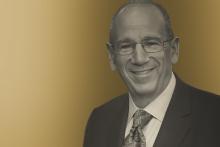Family offices in Asia move onwards and upwards

In the wake of the global financial crisis, family offices in Taiwan, Hong Kong and Thailand share their experiences with Marc Smith.
If anyone in the west was ever in any doubt that the family office model was not going to be an easy sell to Asia, then Simon Mar's experience should confirm their worst fears. Mar, a Taiwanese-American citizen who founded multifamily office Hwa in Taiwan's capital Taipei back in 1993, says the term family office is still a mystery to many Asians, especially the Chinese.
"Some people even think that I sell furniture when I show them my business card!," he tells Campden FO.
However, financial services firms who have rushed to the east hoping to find a goldmine should not despair quite yet. When Mar goes on to explain to the unbelievers what a family office is in a historical context ? as he puts it, 300 years ago every rich family had the equivalent of a CFO to handle their financial affairs ? then they feel more familiar with the concept and understand that a family office is just a new term dreamt up in the west.
"Everyone in Asia knows the content side of the term family office, it's just the name which is unfamiliar," explains Mar, who says he is still going through this same process today just as he was 17 years ago.
But a simple language barrier alone cannot explain why the term family office is still finding it hard to gain currency with many Asian families.
Bonny Landers, CEO of Sterling Private Management, one of Asia's most established single family offices, does not see the multifamily office succeeding because they are just trying to replicate what the private banks should have been doing in the first place.
"From discussions I have had, most families don't believe they would get as much of a customised service as they would like," she says. What's more, she says many of the region's family offices are currently either attached to an operating business or the family simply uses support staff from the operating business as a quasi family office.
This is not the case at Hong Kong-based Sterling, which was founded in the early 1990s when the patriarch retired from running the family's property development company.
Landers, who for the past five years has been working with the family to improve the structure and governance procedures, says the family office started to professionalise before the millennium when it hired an investment professional.
Yet outside the main financial centres of the region, such as Singapore and Hong Kong, there is often no example for others to follow. Shiraz Poonevala is director of investment at GP Group, the Premjee family-owned conglomerate based in Bangkok.
The former HSBC employee was brought in by the family patriarch to set up and run a single family office in 2008, but as he freely admits, it was a difficult start.
"I'm an investment banker by trade and regrettably there was no family office precedent in Thailand to follow," says Poonevala, who believes this is partly because the concept of sharing knowledge and information is alien to many Asian families.
Certainly, if you believe the many anecdotes, Asian families are more secretive than their counterparts elsewhere in the world, and Poonevala says culturally it can be difficult: "When I joined there was a whole issue around how much the patriarch would trust me ? sometimes he forgot to tell me important details until late in the day! ? but overall I have no regrets about joining and the family has been transparent and lived up to the commitments it gave me when I started."
For Mar, single family offices such as Sterling and the one run by the Premjee family are out of reach because of their confidentiality, but the multifamily office model he has developed is proving an equally hard nut to crack.
"I have been trying to solve this mystery for nearly 20 years, but today the multifamily office model is still not that popular, particularly in China" he says.
Hwa's 10 fulltime staff do not manage any money themselves, but provide services such as financial planning, wealth accumulation and preservation advice, cross border tax planning and help with the transfer of wealth.
"Clearly we are still in business so we must be doing something right, but we are still trying to formulate the best model, which I think is somewhere in between a single and multifamily office," says Mar.
Noor Quek, managing director of NQ International, which specialises in offering multifamily office solutions, agrees with Mar that the formalised structures common in the west are not as popular in Asia. This is a situation that is unlikely to change overnight, she argues, but change will eventually happen.
"Ultimately this is because the financial crisis has brought families closer together as they face the real possibility of losing their legacies by the next generation. In addition, bankers don't seem to be serving the full wealth advisory needs of the family, so the need for formalised family offices and family office advisors will be heightened," she says.
So what impact has the financial crisis really had on Asian family offices? While no region can claim to have been untouched, Asian economies certainly fared better than most. Figures from the International Monetary Fund, for example, show that Asian economies are growing at a faster rate than their counterparts in the west.
Even leaving aside the growth engines of India and China, GDP in the US and Switzerland is expected to grow at a substantially lower rate than Malaysia, Singapore and Thailand both this year and next. These three Asian economies will even grow faster than Brazil.
Such findings are certainly backed up by Poonevala, who was tasked with establishing a new family office at the height of the credit crunch. "Although we set up during the crisis, timing wasn't an issue as the operating businesses were generating a lot of cash at that time," he says.
"My investment banking mind was therefore thinking that it was a time of great opportunity. The idea we had was that we could keep on growing by investing the money in various opportunities. However, in reality we ended up putting a lot more money in than we intended and have been more defensive since." (To read more of our exclusive interview with Shiraz Poonevala, click here)
For Mar, the financial crisis served to highlight the differences between the investment landscapes in Asia and the west. "The crisis led to a lot of paper money being printed in the west, but because Asia is a more export oriented society, this new money came east and the region's wealthy families are holding a huge amount of cash."
However, Mar says cash-rich Asian families perceive equity investments in the west to be too risky at present, which, allied to the fact that security-type investments are less common, means money has been flooding into real estate. "Hong Kong is proving particularly popular and we are seeing double digit growth there every month," says Mar.
"History has taught Asians that real estate holds its value and a sub prime crisis is not expected because families have paid for the properties in cash so there is no need for mortgages," he says.
Consequently, instead of trying to recommend new funds or asset classes, Mar is putting his eggs firmly in the real estate basket. He has just returned from London where he has agreed a partnership with Winkworth, a real estate firm synonymous with prime UK residential real estate, to set up an Asian operation that aims to encourage clients in China and Taiwan to invest in property on a global scale.
At Sterling, Landers says the speed and depth of the financial crisis caught everyone by surprise, but being long-term investors the family did not overreact and "pretty much stayed the course". However, for one female family member in particular the crisis did serve as a turning point.
"She had already started a journey along the sustainable investing route, but the financial crisis crystallised it for her and she is moving her whole portfolio into sustainable and socially responsible investments," explains Landers.
It is a trend that Landers says is being replicated by other families in the region. "One thing that the crisis did was to make people question whether they can invest in a new way ? is there a new model? It's something second-generation family members in Hong Kong are certainly asking," says Landers.
This highlights the wider issue of a generational shift that is inherent in many Asian families at the current time. "The patriarchs with immense wealth here are all in their 80s, while their children are in their 40s and 50s, but it is clear the next generation want to do things differently," says Landers who claims the patriarch of Sterling is more progressive than most in how he is handling transition.
"He is transitioning some of the wealth a lot sooner than many out here do. He was as fair as he could be ? it's really fantastic," explains Landers, who believes early planning makes passing on the wealth much easier for the individual children in the succeeding generations. However, the CEO does admit that if the next generation "really went off into left field" with their ideas for the uses of the wealth then their father might say something, but he's "actually pretty hands off". Given that the age range of the "children" is 45 to 60, you would like to think they can make their own decisions.
But that is not always the case, as Landers explains. "I met with another Hong-Kong family here at the request of the daughter who's in her 40s. She wanted me to meet her father and share what we do at Sterling. The father listened very politely and said at the end: "Yes, but my children aren't ready."
According to Quek, it will take another 10 years for a developed family office market to evolve as western-educated next generation members begin to take over the reigns from their parents. Crucially, she says when this does happen it will herald a change in attitude that will see a more transparent environment: "There is a realisation that the next generation will be less hands-on and rely more on professionals."
As all three family offices look towards the future, it is clear their priorities, like the families they serve, are all different. "I have become more optimistic since the crisis because there is so much liquid wealth here," says Mar who is hoping to spread the family office gospel among a community that is yet to fully grasp the meaning of the model and the opportunities it brings.
For Sterling and Landers, it is about finding a suitable compromise that is able to service the next generation who will be doing different things in different parts of the world. "You can't just have this structure that fits the older generation - you have to really think globally for efficient planning," says Landers.
For Poonevala, there are yet unknown challenges with regard to the next generation, although he is ready to work through them when they arise. But as he muses on the question of whether an Asian family office model will develop, he strikes a chord that any family would be happy to hear.
"It's difficult to say if the model we have is Asian or western, but ultimately it suits the family's needs and that's the most important thing," he says.






